Faculty Fellows
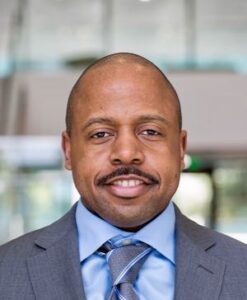
Wilson Vincent, Ph.D., is an Assistant Professor in the Department of Psychology and Neuroscience in the College of Liberal Arts at Temple University. Broadly, he is interested in understanding and preventing mental and physical health disparities that affect racial, ethnic, sexual, and gender minorities. For example, Dr. Vincent is currently working on increasing retention in HIV care for Black sexual-minority men living with HIV using a combination of in-person and mobile health (mHealth; e.g., text messaging, online platforms) approaches. He also authors and co-authors articles for which he builds quantitative models of the mechanisms that undergird health disparities and health-related interventions. For his fellowship project, Dr. Vincent will use longitudinal structural equation modeling to understand the associations between perceived stress and indicators of obesity over time. He will investigate the roles of mechanisms such as immune activation and inflammation and the impact of the COVID-19 pandemic. He is leveraging data from a National Institutes of Health-funded longitudinal cohort study of women at risk of or living with HIV and datasets of nationally representative cohorts in the United States. This work will help elucidate how biological, psychological, and social factors jointly affect health outcomes. The findings will also provide preliminary data to support subsequent grant proposals and inform intervention development to address these issues.
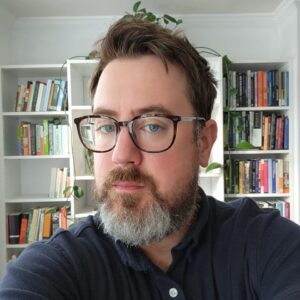
Andrew Iliadis is an Assistant Professor in the Department of Media Studies and Production (within the Klein College of Media and Communication) at Temple University and serves on the faculties of the Media and Communication Doctoral Program, Cultural Analytics Graduate Certificate Program, and Science, Technology, and Society Network. He holds a Ph.D. in Communication and Philosophy from Purdue University. His research focuses on the social implications of data science with specific interests in semantic and embodied computing. He is the author of Semantic Media: Mapping Meaning on the Internet (Polity, 2022) and co-editor of Embodied Computing: Wearables, Implantables, Embeddables, Ingestibles (MIT Press, 2020). His fellowship project will use semantic network analysis to examine knowledge representation in Wikidata. Wikidata is a structured data knowledge base containing over 100 million facts from which search engines and virtual assistants retrieve information. His project will examine the prevalence of sociocultural biases in the dataset and provide analytics about Wikidata’s taxonomic and ontological modeling. The project will contribute to understanding how knowledge is constructed and shared in a networked society.
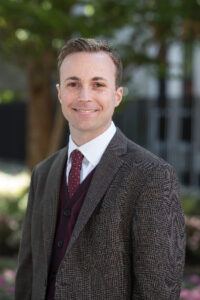
Timothy Patterson, Ph.D., is Associate Professor in the Department of Teaching and Learning in the College of Education and Human Development at Temple University. His primary scholarly interest unites two important strands of the research on social studies education: teacher education and global studies. Using the lens of global citizenship education, Dr. Patterson has conducted studies on various factors that condition, constrain, and otherwise influence the pedagogical decision making of pre- and in-service social studies teachers. More recently, Dr. Patterson has investigated the potentials of virtual reality in history education, particularly around the cultivation of historical empathy. To that end, his fellowship project is titled “The Virtual Blockson.” This project, currently in its developmental phase, utilizes virtual reality to teach high school students primary source literacy using materials from the Charles L. Blockson Afro-American Collection. Dr. Patterson’s role on this project is the pedagogical coordinator, overseeing the development of a teaching toolkit supporting teachers’ implementation of the game in their classrooms. He will also design and implement an assessment plan to evaluate the effectiveness of the game and teaching toolkit in K-12 classrooms.
Graduate Student Fellows

Mikayla Brown is a Media and Communication Ph.D. Student at Temple University. She received her B.A. from Hunter College in Media Studies, with a focus in Women and Gender Studies, and an M.A. degree in New Media and Digital Culture from The University of Amsterdam. Prior to pursuing her Ph.D., Mikayla worked in integrated marketing communication, focusing on political advertising where she used psychographic data, location-based advertising, persuadability and voter propensity charts, and other neuromarketing tactics to elicit million-dollar donations and influence voter behavior. As an extern at the Scholars Studio, Mikayla’s research will focus on how Black identity is constructed through portraits, paying close attention to what visual markers signify. Through mapping and linked metadata, her research aims to form a larger narrative about the artist and artwork and the potentialities of Black portraitures as being self-emancipatory objects of resistance. Mikayla also researches how narratives of value, possession, and interpretation emerge as museums address the repatriation of cultural artifacts. You can read more about Mikayla’s professional and academic experience on her website or by connecting with her on LinkedIn.
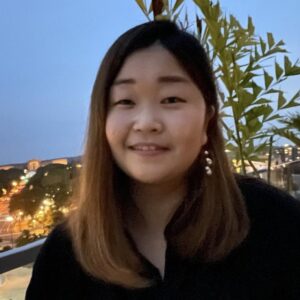
Hyangeun Ji (Jenny) is a doctoral candidate in Temple’s Science, Math, and Educational Technology program. Her research interest includes but is not limited to artificial intelligence in education, virtual/mixed learning environments, and computer-assisted language learning. As a past computer programmer and English as a foreign language teacher in South Korea, she is most interested in the intersection between emerging learning technologies and sociocultural and pedagogical aspects of language learning and social studies. At Duckworth, she will engage in the Virtual Blockson project, a pioneering endeavor that employs virtual reality to transport high school students into the Charles L. Blockson Afro-American Collection, cultivating their primary source literacy and historical comprehension through an engaging and interactive learning experience.
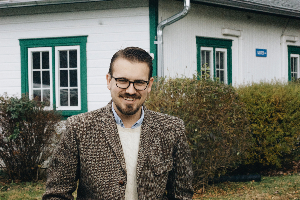
Jake Wolff is a PhD student in the Department of History. His current research maps how the Federal government incentivized transcontinental migrations from the Rust Belt to western Sun Belt during the postwar era. In the Duckworth Scholars Studio, he is building a digital exhibit tracing how interstate highway bypasses impacted traffic volume and economic activity in municipalities along Route 66. Jake is interested in how these political histories shape contemporary tensions between middle-class preservationists and working-class residents at odds over expanded mass transit in Albuquerque, New Mexico. Prior to joining the History Department at Temple University, Jake helped develop accessibility protocols for serving municipal and Tribal governments within New Mexico’s Central Rio Grande Valley planning district and drafted Albuquerque’s plan for micromobility, the shared bikes and scooters now readily available in most city centers. He had also managed projects for a union contractor specializing in historic masonry throughout eastern Pennsylvania. Jake earned his master’s degree in urban geography from the University of New Mexico and studied labor history at the University of Pittsburgh’s campus in Johnstown.
CLIR-Mellon Postdoctoral Fellow
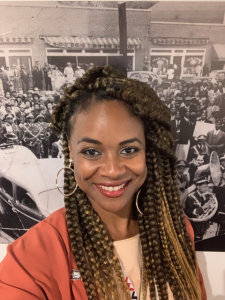
Synatra Smith earned her Ph.D. in Global and Sociocultural Studies with a concentration in Anthropology from Florida International University. Her research focuses on the creation, perpetuation, and transformation of the socio-political intersectional Black cultural landscape with special attention to the ways in which virtual and physical space are used as environments to conceptually and practically transform Black identification processes as well as the material culture that contributes to this phenomenon. She has been working in the galleries, libraries, archives, and museums (GLAM) field for the past five years, officially in museum education but she’s also curated, worked in collections, managed an outreach initiative, etc. In her current position with Temple and PMA, she is exploring the myriad ways in which Black artists and scholars in Philadelphia reimagine and conceptualize their communities. She is going to be working on capturing a broad spectrum of materials, from murals, zines/comics, posters, fashion/cosplay/textiles, and performance art, to 3 dimensional models of sculptures and monuments and using linked data and mapping tools for data visualization. Outside of this fellowship, She’s working on a multi-chapter report to historically contextualize the use of racially restrictive deed covenants in Hyattsville, Maryland as a federally-sanctioned method of residential segregation during the first half of the twentieth century. And as a true millennial, she not only has a full time fellowship and an external research project, she also works with a childhood friend and his fraternity brother on a Black culture trivia mobile app called Trivia Black. Synatra recently started brainstorming ways to integrate a gaming experience into this project potentially through virtual reality and/or augmented reality to create a more interactive digital exhibition model.